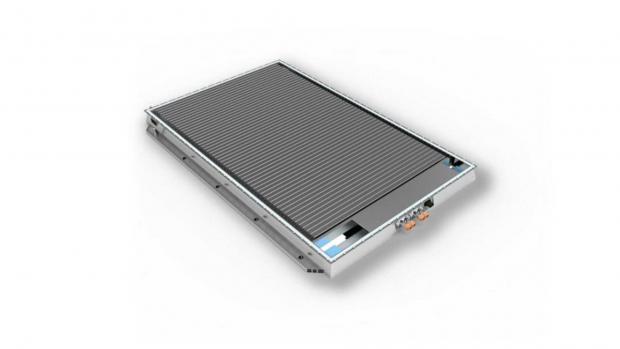
Breaking News
 China's Nightmarish New Bio Weapon Targets Race and Ethnicity
China's Nightmarish New Bio Weapon Targets Race and Ethnicity
 The Epstein Files Just EXPOSED the AI Mind Control Agenda (2026 Warning)
The Epstein Files Just EXPOSED the AI Mind Control Agenda (2026 Warning)
 Maxwell offers testimony if granted Trump clemency
Maxwell offers testimony if granted Trump clemency
 How RFK Jr's Guidelines Could Change Farming - Joel Salatin
How RFK Jr's Guidelines Could Change Farming - Joel Salatin
Top Tech News
 SpaceX Authorized to Increase High Speed Internet Download Speeds 5X Through 2026
SpaceX Authorized to Increase High Speed Internet Download Speeds 5X Through 2026
 Space AI is the Key to the Technological Singularity
Space AI is the Key to the Technological Singularity
 Velocitor X-1 eVTOL could be beating the traffic in just a year
Velocitor X-1 eVTOL could be beating the traffic in just a year
 Starlink smasher? China claims world's best high-powered microwave weapon
Starlink smasher? China claims world's best high-powered microwave weapon
 Wood scraps turn 'useless' desert sand into concrete
Wood scraps turn 'useless' desert sand into concrete
 Let's Do a Detailed Review of Zorin -- Is This Good for Ex-Windows Users?
Let's Do a Detailed Review of Zorin -- Is This Good for Ex-Windows Users?
 The World's First Sodium-Ion Battery EV Is A Winter Range Monster
The World's First Sodium-Ion Battery EV Is A Winter Range Monster
 China's CATL 5C Battery Breakthrough will Make Most Combustion Engine Vehicles OBSOLETE
China's CATL 5C Battery Breakthrough will Make Most Combustion Engine Vehicles OBSOLETE
 Study Shows Vaporizing E-Waste Makes it Easy to Recover Precious Metals at 13-Times Lower Costs
Study Shows Vaporizing E-Waste Makes it Easy to Recover Precious Metals at 13-Times Lower Costs
BYD Reveals Ultra-Safe Blade Battery: Pierces It With A Nail

The Chinese battery and EV tycoon BYD officially launched its all-new Blade Battery, which within the next few months will debut in first electric models.
The Blade Battery is essentially a lithium iron phosphate (LFP) battery, but in a new approach to significantly increase safety and volumetric energy density as well as reduce costs.
"At an online launch event themed "The Blade Battery – Unsheathed to Safeguard the World", Wang Chuanfu, BYD Chairman and President, said that the Blade Battery reflects BYD's determination to resolve issues in battery safety while also redefining safety standards for the entire industry."
To improve the batteries, BYD changed the conventional prismatic LFP cells into thinner and longer cells, which were designed to become structural parts (beams) of the pack. That simplifies the pack design.
BYD argues that conventionally, only about 40% of the battery pack volume is batteries (cells take 80% of a module, and modules take 50% of the pack). In the case of the new Blade Battery approach - cell-to-pack (CTP) technology - the batteries take 60% of pack volume, which is a 50% improvement.
"The Blade Battery has been developed by BYD over the past several years. The singular cells are arranged together in an array and then inserted into a battery pack. Due to its optimized battery pack structure, the space utilization of the battery pack is increased by over 50% compared to conventional lithium iron phosphate block batteries."

 Smart dust technology...
Smart dust technology...

